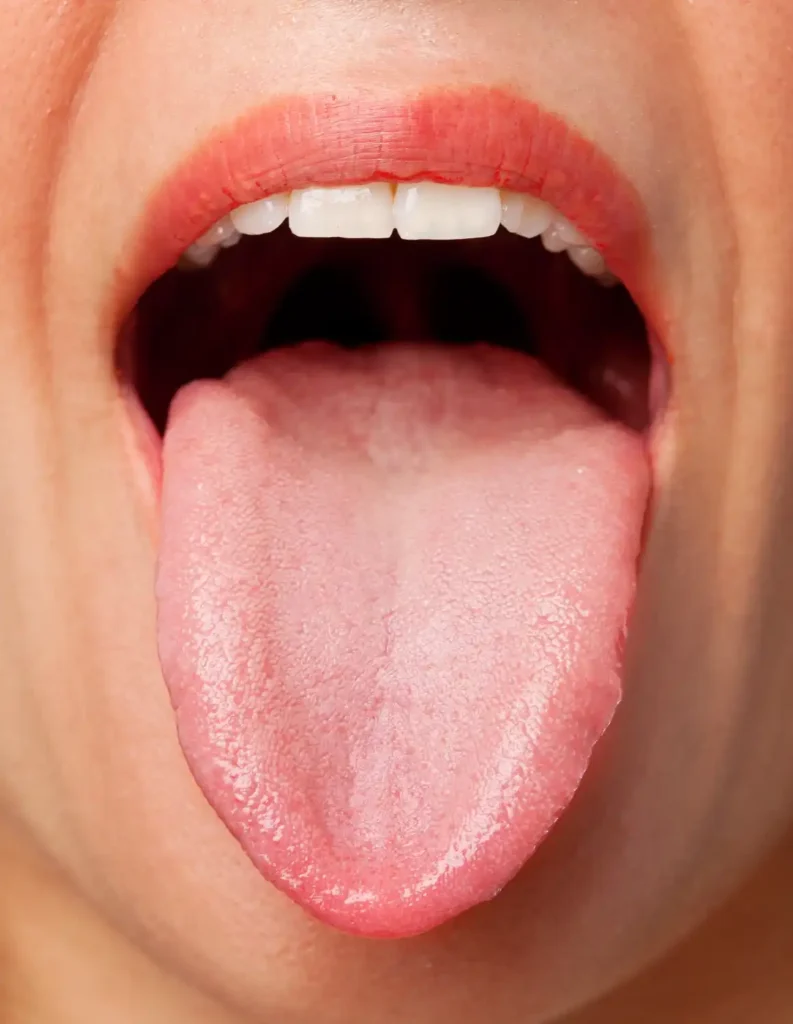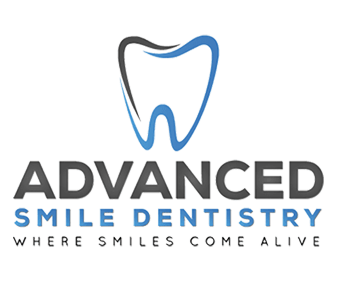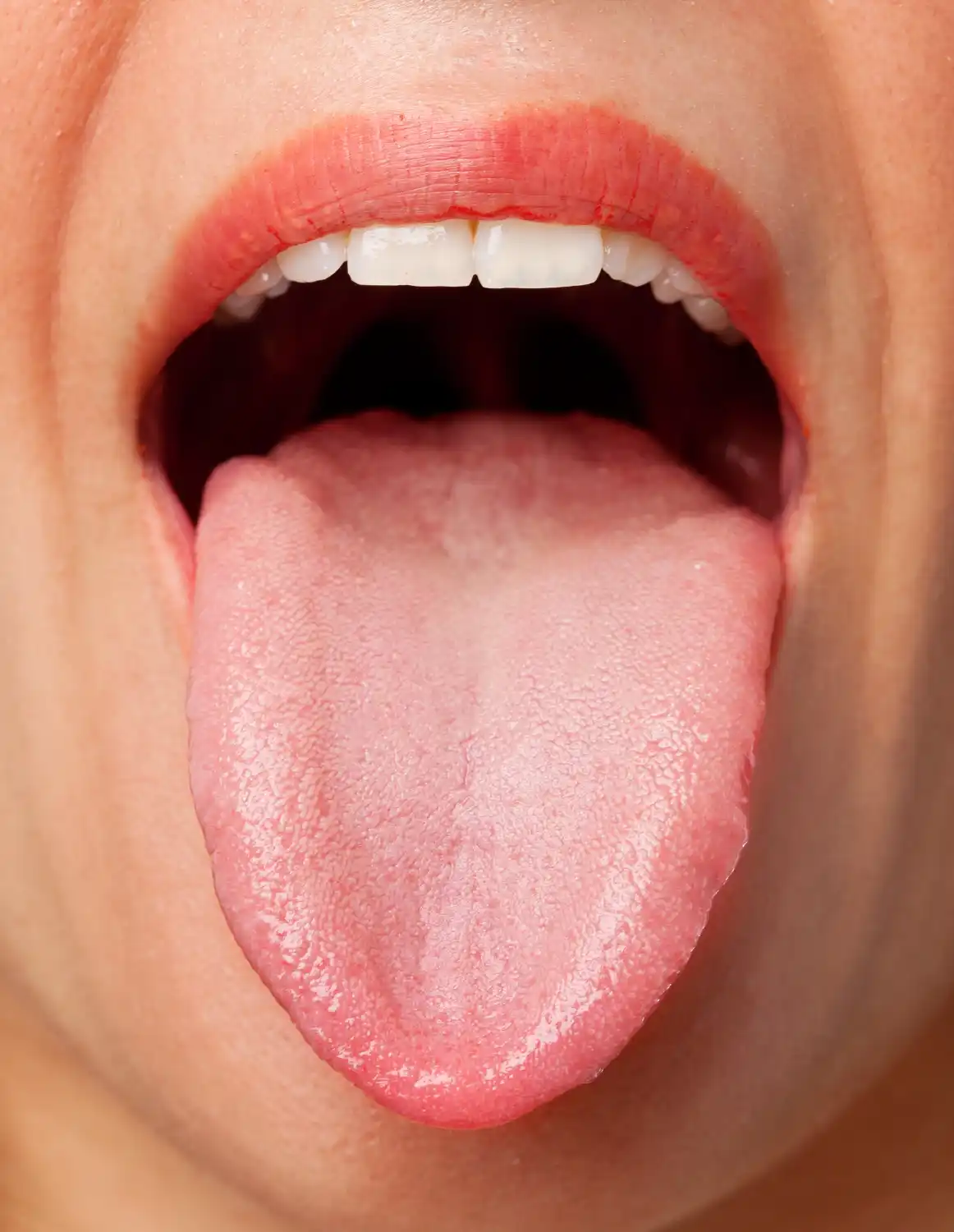Mouth Sore

#1What are the causes of Mouth Sore?
A mouth sore, also known as an oral ulcer or canker sore, is a small, painful lesion that develops on the inside of the mouth, including the lips, tongue, gums, and the lining of the cheeks.
These sores are usually round or oval-shaped and can be white, gray, or yellow in color, with a red border.
Sore in mouth can be caused by various factors, such as:
- Minor Injury: Accidental biting, brushing too hard, or other minor injuries to the mouth can lead to the formation of mouth sores.
- Certain Foods: Spicy, acidic, or very hot foods can sometimes trigger or exacerbate mouth sores.
- Stress: Emotional stress or a weakened immune system can make a person more susceptible to developing mouth sores.
- Certain Medical Conditions: Conditions like vitamin deficiencies, autoimmune diseases, and gastrointestinal disorders can contribute to the development of mouth sores.
- Hormonal Changes: Hormonal fluctuations, such as those occurring during menstruation, can sometimes lead to the formation of mouth sores.
Most mouth sores are not serious and tend to heal on their own within a week or two. Over-the-counter topical treatments can help alleviate pain and discomfort.
However, if mouth sores persist for an extended period, are unusually large, accompanied by severe pain, or appear frequently, it’s advisable to consult a healthcare professional to rule out underlying medical issues.
#2Is there a Mouth Sore treatment?
Yes, there are various remedy available to help alleviate the discomfort and promote healing of mouth sores. Keep in mind that the effectiveness of these treatments can vary from person to person, and it’s always a good idea to consult with a healthcare professional before starting any treatment.
Here are some common methods:
-
Topical Medications:
- Over-the-counter topical creams or gels containing ingredients like benzocaine, hydrogen peroxide, or fluocinonide can provide temporary pain relief and help reduce inflammation.
-
Saltwater Rinse:
- Gargling with warm saltwater can help cleanse the mouth, reduce irritation, and promote healing. Mix a teaspoon of salt in a cup of warm water and rinse your mouth several times a day.
-
Antiseptic Mouthwashes:
- Using an antiseptic mouthwash can help prevent infection and maintain oral hygiene. Look for a mouthwash that is alcohol-free and specifically formulated for mouth sores.
-
Topical Analgesics:
- Some over-the-counter products come in the form of patches or dissolving strips that can be applied directly to the sore for localized pain relief.
-
Avoid Irritating Foods:
- Spicy, acidic, and hot foods can exacerbate mouth sores. Avoid these types of foods until the sore heals.
-
Maintain Good Oral Hygiene:
- Gently brush your teeth and use a soft-bristle toothbrush to avoid further irritation. Flossing regularly can also prevent food particles from irritating the sore.
-
Cold Compress:
- Applying a cold, damp cloth or an ice pack wrapped in a cloth to the affected area can help reduce pain and inflammation.
-
Nutritional Supplements:
- If mouth sores are recurring or frequent, your doctor may recommend nutritional supplements, such as vitamin B12, folic acid, or iron, if deficiencies are suspected.
-
Prescription Medications:
- In cases of severe or persistent mouth sores, a doctor may prescribe stronger topical or oral medications to help manage pain and promote healing.
Remember that if your mouth sore does not improve within a week or two, is unusually large, causes severe pain, or is accompanied by other symptoms like fever, it’s important to seek medical advice.
Persistent or recurrent mouth sores may be indicative of an underlying medical condition that requires proper medicine and treatment by a healthcare professional.
#3How long do Mouth Sores last?
The duration of mouth sores can vary widely depending on the cause, severity, and individual factors. In most cases, simple mouth sores (also known as aphthous ulcers or canker sores) tend to heal on their own within about 1 to 2 weeks. Here are some general guidelines for different types of mouth sores:
- Minor Aphthous Ulcers (Canker Sores): These are the most common type of mouth sores. They typically heal within 1 to 2 weeks without treatment. Over-the-counter treatments and home remedies can help alleviate discomfort and promote healing.
- Major Aphthous Ulcers: These are larger and deeper sores that can take several weeks to heal. They may cause more pain and discomfort than minor aphthous ulcers.
- Herpetic Lesions (Cold Sores or Fever Blisters): These are caused by the herpes simplex virus and usually develop on the outside of the mouth, such as the lips. They tend to go through stages, including tingling, blistering, and crusting, and may take about 1 to 2 weeks to heal.
- Traumatic Ulcers: Mouth sores caused by minor injuries, such as accidentally biting your cheek or tongue, usually heal relatively quickly, often within a week or so.
- Other Conditions: Mouth sores caused by underlying medical conditions, such as autoimmune disorders or infections, may persist longer and require specific treatment approaches.
#4Can you use hydrogen peroxide as mouthwash?
Hydrogen peroxide is sometimes used as a mouthwash, but it should be used with caution and in a diluted form. It can help to kill harmful bacteria in the mouth and whiten teeth. However, it’s important to follow these guidelines if you want to use hydrogen peroxide as a mouthwash:
- Dilution: Never use undiluted hydrogen peroxide as a mouthwash. You should dilute it with water to a concentration of 1.5% to 3%. This means mixing equal parts of 3% hydrogen peroxide with water.
- Avoid Swallowing: Be very careful not to swallow the mixture. Swallowing hydrogen peroxide can be harmful.
- Short Contact: Do not use it for an extended period. Swish the diluted mixture in your mouth for about 30 seconds to 1 minute, and then spit it out.
- Do Not Overuse: Do not use hydrogen peroxide as a mouthwash on a daily basis. It’s best to use it as an occasional rinse.
- Rinse Thoroughly: After using hydrogen peroxide as a mouthwash, rinse your mouth with plain water to remove any residual hydrogen peroxide.
- Monitor Sensitivity: If you experience any irritation or increased sensitivity in your mouth or gums, discontinue use.
- Consult a Dentist: Before using hydrogen peroxide as a mouthwash, it’s a good idea to consult with a dentist or dental professional to ensure it’s suitable for your specific oral health needs.
While hydrogen peroxide can be effective for killing bacteria and whitening teeth, there are also some potential risks associated with its use, such as irritation or tissue damage. Therefore, it’s important to use it with caution and under the guidance of a healthcare professional.





